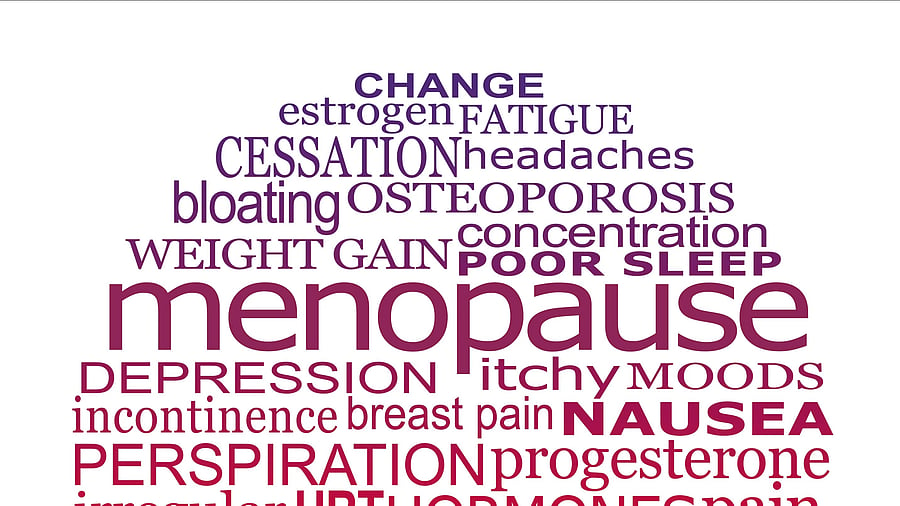
Early menopause: City doctors push for hormone therapy to protect women’s bone health.
Photo for representational purpose.
Credit: iStock photo
Bengaluru: With thousands of women hitting menopause earlier than expected, often in their mid-40s, doctors are increasingly recommending Hormone Replacement Therapy (HRT) to manage bone density issues such as osteoporosis and osteoarthritis.
In India, pills, gels, or patches with estrogen are commonly prescribed, along with micronised progesterone. The therapy helps offset bone loss triggered by the decline in estrogen after menopause, while also easing hot flashes, night sweats, mood swings, weight gain, and joint aches.
Dr Sapna Raina, Clinical Lead, Department of Obstetrics and Gynaecology, said, "We are witnessing a steady rise in osteoporosis and osteoarthritis cases in women. Low dietary calcium, Vitamin D deficiency, and sedentary lifestyles worsen the risk.”
After menopause, women can lose up to 20% of their bone mass within five to seven years if untreated, she added.
Doctors usually consider 51–53 as the average age for menopause. But in the past decade, more women are attaining it in their mid-40s, and in some cases before 40, which is termed pre-menopause or perimenopause.
“HRT is given to women who attain menopause early to maintain hormone levels similar to pre-menopause. For women under 40, the doses are higher. Screening for cancer is also done before therapy begins,” said Dr Pramila Kalra, Consultant, Endocrinology Disorders.
Risks of HRT
HRT comes with risks, including cancer, cardiovascular complications, and blood clots.
“In 2002, the Women’s Health Initiative (WHI) study clearly showed risks in the form of cardiovascular issues, breast cancer, stroke and venous thromboembolism,” said Dr A Sharda, Consultant (Endocrinology). “But the study also showed clear benefits in improving bone mass and reducing fractures.”
Doctors opine cancer and cardiovascular complications remain the major risks.
"The risk of cardiovascular disease is higher if HRT is started more than 10 years after menopause. The type and duration of therapy directly influence cancer risk,” said Dr Manohar Babu, an orthopaedician.
The therapy, whichever form it takes, cannot be stopped suddenly. For women nearing menopause and treated with low doses, doctors taper the dosage once symptoms subside.
“In some cases, liver problems were also diagnosed as side effects. Patients must be monitored periodically and report nausea or vomiting immediately,” said Dr Pramila.